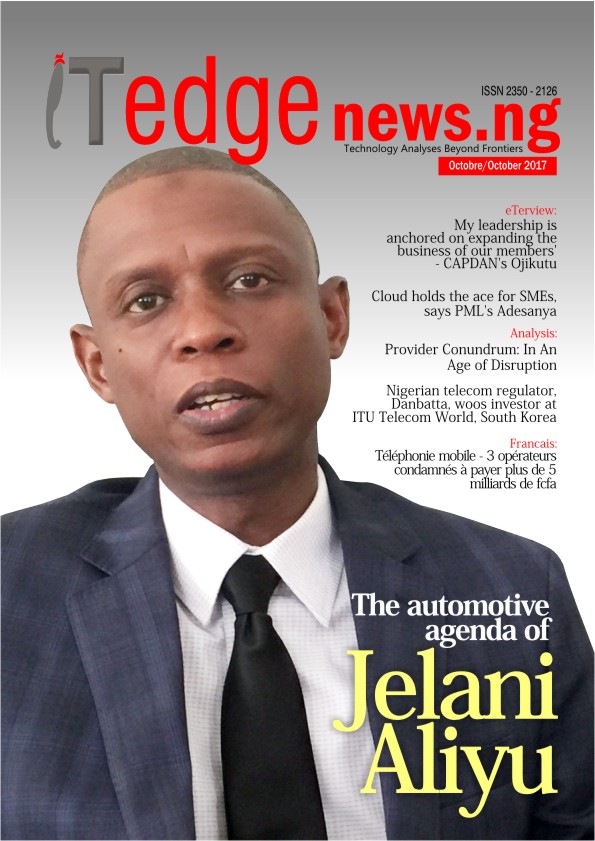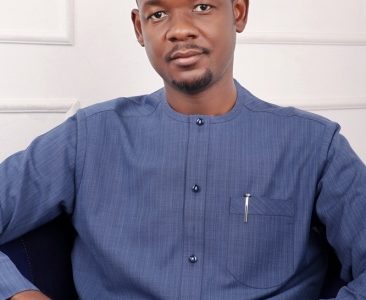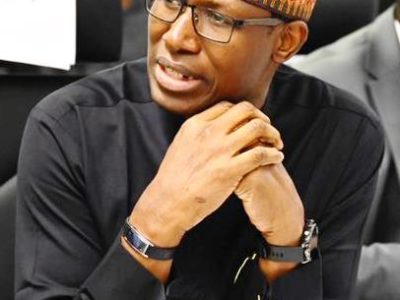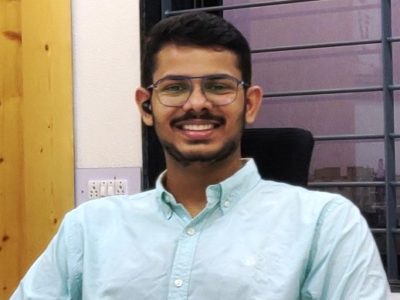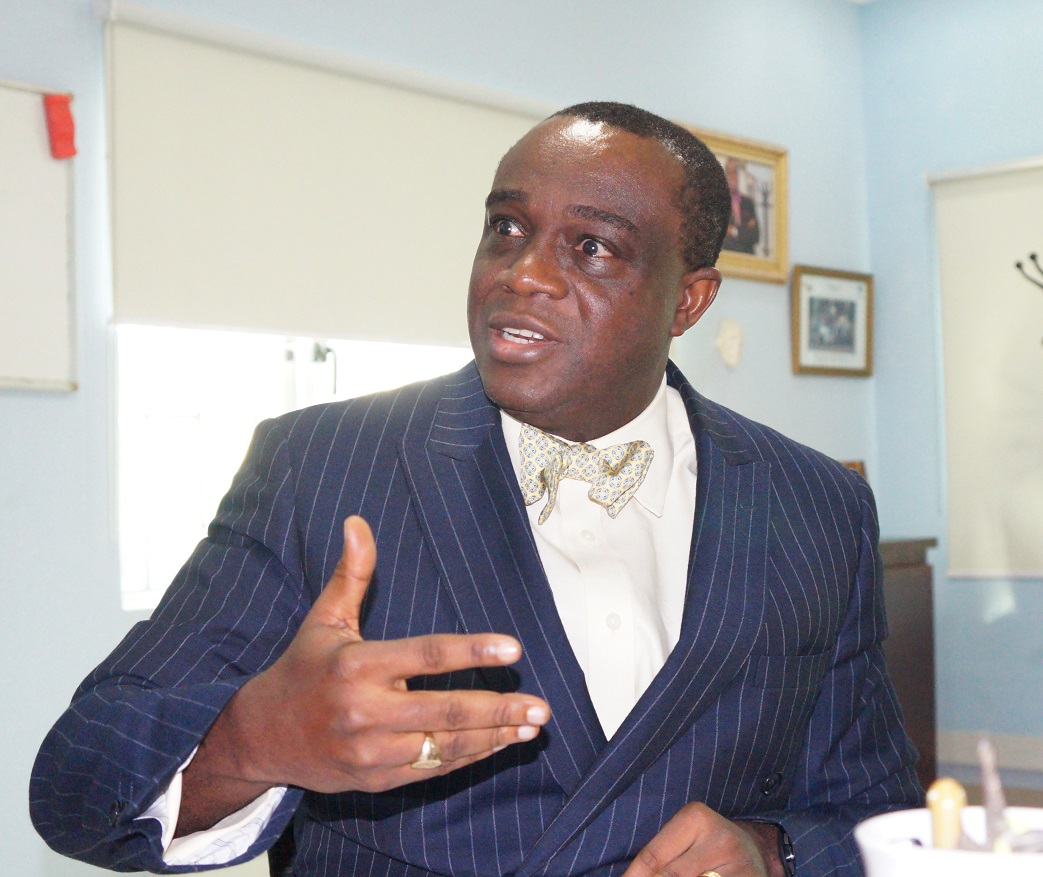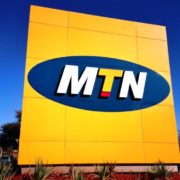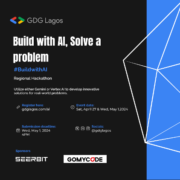Jelani Aliyu comes to the National Automotive Design and Development Council (NADDC), with a track record of a global inventor. He invented the General Motors’ (GM) Chevrolet Volt (Chevy Volt) and built a reputation as a creative designer. The Chevy Volt is a plug-in hybrid, extended-range electric passenger vehicle, manufactured by General Motors and remains the most electrifying advanced technology vehicle. In 2012, he was conferred with the national award of Member of the Federal Republic (MFR) by President Goodluck Jonathan to add to a portfolio of recognitions in his kitty. Jelani has remained at the fore-front of design and innovation for the global automotive industry. Since his appointment in May 2017 by President Muhammadu Buhari as the Director General of NADDC, Jelani has sought to put life into Nigeria’s policy thrust for automotive manufacturing. The challenges are huge, he tells IT Edge News in his office in Abuja. But he must take Nigeria from the fringe of auto production into main stream manufacturing within the ambit of NADDC’s mandate.
That mandate is fostered round promotion of competitiveness and enhanced productivity; provision and development of industrial infrastructure, skills development, development and adoption of standards, investment promotion and market development. All of these stare Jelani in the face but he is convinced they are achievable. “We have two options” he says, “to either continue with the status quo and live a life of mediocrity or take bold steps with a lot of courage and commitment to create a whole new positive future for the country…. I have always believed that the problem with Nigeria is really not the lack of resources or lack of talent… but I think our biggest challenge is the lack of belief that an individual can get up and make his or life better.” He shares his agenda with IT Edge News. Three focal points come out distinctly: he wants 60% of the vehicles being sold in Nigeria to be produced in Nigeria; Secondly, he plans for the NADDC to have a dedicated automotive design and innovation institute where young Nigerians could train to become automotive development professionals servicing the local and global industry; and thirdly, he is preparing the NADDC to begin to drive electrified vehicle policy that can support the development, manufacture and consumer’s adoption of electric vehicles in Nigeria. In three years’ time, he wants to look back and see how much of these three items have been actualized. They form the basis of his mission at the NADDC.
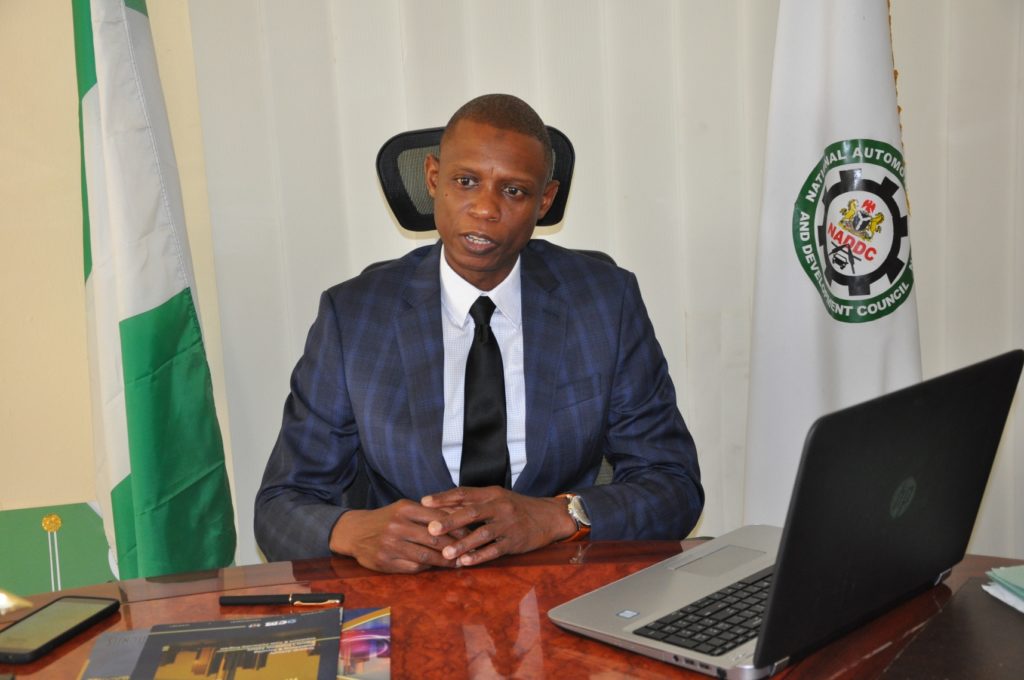

What will you say has been your challenges in managing the NADDC?
First of all, it’s a great honor and a pleasure to have the opportunity to serve Nigeria; to have the opportunity to be part of the movement that’s destined to change the lives of all Nigerians. We are at a particular moment of this nation’s history, where I believe we have two options: to either continue with the status quo and live a life of mediocrity or take bold steps with a lot of courage and commitment to create a whole new positive future for the country.
So I believe one of the challenges that I found on the ground is something that is ubiquitous across the country. I have always believed that the problem with Nigeria is really not the lack of resources or lack of talent, neither is it completely that of corruption, but I think our biggest challenge is the lack of belief that an individual can get up and make his or life better. I think that’s something that needs to be overcome so that we can move this country forward, especially the automobile sector.
We are all aware, we don’t have the necessary capacity within the country that we can term indigenous that will serve this market neither are we actually importing enough vehicles. What needs to be done is to truly understand how we can increase that capacity by both creating the enabling environment, empowering any credible manufacturer to set up operations in Nigeria, not just to produce vehicles but to produce the right type of vehicles that is affordable without compromising efficiency or safety. Yes! A lot of vehicles are beyond the reach of Nigerians; to counter this challenge, we must produce cars that are both affordable and safe.
If we look at the landscape or ecosystem of the automobile industry Nigeria, a lot of affordable vehicles are not really what you will term affordable in other parts of the world. They happen to be affordable because they are old and dilapidated and not because they have been strategically designed and developed to be inexpensive, which is what is happening around the world. If you go to any developed country, any entry level vehicle will be brand new, designed, developed and engineered to be affordable without any compromise. So, we must work with all the stakeholders to see how Nigerians can be offered all those types of vehicles. Nigerians do not have to contend with used vehicles that have run their course in the other parts of the world. We must provide affordable vehicles that are safe and feel efficient as well as right for our environment.
“We must understand that the success of a business venture must be tied to the public itself not to the government; maybe today the government is the largest buyer of goods and services in the country, but we cannot sustain an effective economy like that. Our producers, manufacturers and assemblers must make the man on the street the primary market.”
In my discussions with a lot of stakeholders and potential investors into Nigeria, there are a number of infrastructure challenges that we have to overcome before we can really take off and a lot of it has to do with power. We are all aware of the issue we have with electricity; that’s something that must be addressed. We must come together and see how can provide effective, continuous and sustainable power across that country to power our industry.
There are probably certain solutions that were tried and certain initiatives that were put forward earlier.What we need to do now is sit down and discover the challenges we have with power. We are unable to power our industries, our homes, our offices. How do we do it? What do we have that is naturally available that we can leverage on and utilize to enable a reliable power generation system? We have solar, there’s wind, there’s hydro power generation and there are other sources that can be engaged. What we need to do is go beyond the plug and play in terms of power, go beyond saying this is the solution that was applied somewhere else and bring it to apply here in Nigeria. Let’s sit down and understand where we are and how we can generate a lot of electricity that can primarily serve our homes, our agricultural initiatives and our industries.Only then can we move forward because power is really a key factor in industrialization.
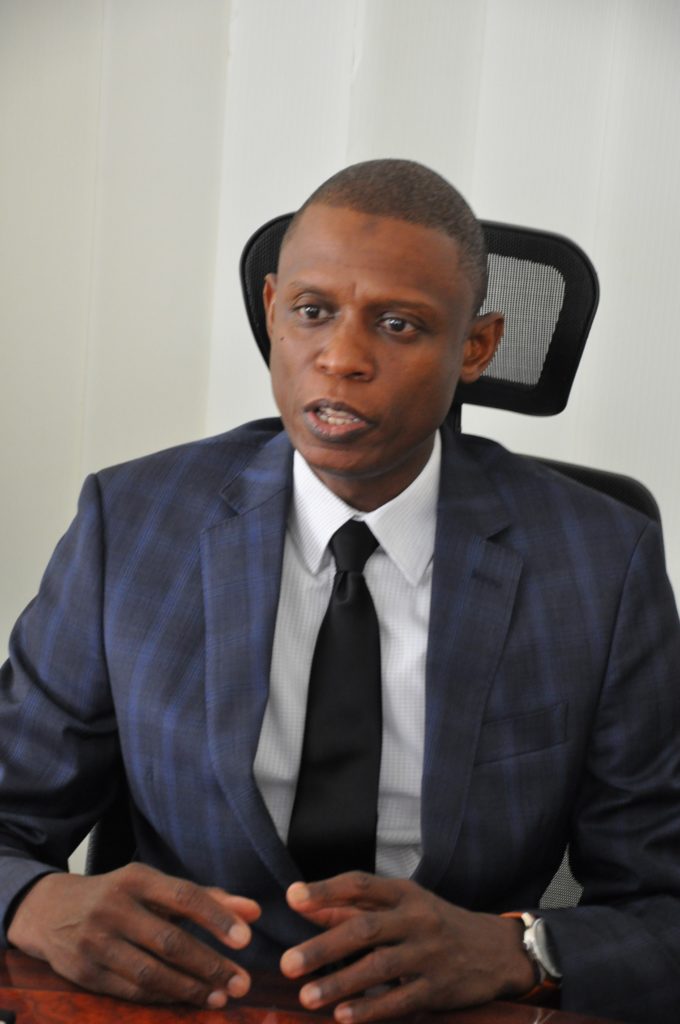

Jelani Aliyu: “We must produce the right type of vehicles for this part of the world, for our culture, climate and terrain.”
Do we have strong government policy to assist the private sector to build affordable vehicles or a policy that envisions the fact that the private sector can be motivated to build affordable vehicles for the mass of the people to end the era of second-hand cars?
Yes, the prime policy that we have is primarily geared towards the fundamental production of vehicles within the country, empowering and supporting our investors and stakeholders to produce as opposed to importing vehicles. To produce locally either from completely knocked down (CKD) or semi knocked down (SKD) depending on the level of assembling required in Nigeria. But what needs to be done now is move beyond saying you have to make this car in Nigeria. We have to go into; okay you will be producing these cars in Nigeria, but are they the right kind of vehicles that will perfectly fit our culture, climate terrain and most importantly our economic structure. So, if a certain manufacturer or stakeholder say we are producing model B, C, D in this country, let’s say what other models do you have that you are selling in other parts of the world that are model A entry level. We will find out that usually those models are not affordable here in Nigeria. We tend to see a lot of up level vehicles that are available and that the government can easily buy, but we must understand that the success of a business venture must be tied to the public itself not to the government; maybe today the government is the largest buyer of goods and services in the country, but we cannot sustain an effective economy like that. Our producers, manufacturers and assemblers must make the man on the street the primary market.
So, they must sit down and strategize to bring into the country those types of vehicles the common man can buy and then we must also move into the design and innovative phase of vehicles. We can’t just continue to assemble vehicles, even if we reassembling those vehicles 100 percent. We can’t even stop at 100 percent which is impossible, but even if it were, we couldn’t just produce or manufacture vehicles.We have to design, innovate and develop them here ourselves. And once we do that, we will understand what our people need including the geographical challenges the vehicle will go through. Once we begin to design, innovate and develop vehicles for our own peculiar conditions; those vehicles will best fit our environment.
“Most times, you hear people say Africans break stuff, Nigerians don’t have maintenance culture, if something breaks down we can’t fix it, well I say why don’t we design things that do not break. If that is the culture of the typical Nigerians or Africans to not want to fix stuff easily, if the environment is harsh then you owe to that culture, you owe it to those people to design something that is tough and durable.”
A lot of the vehicles and technology in Nigeria and the rest of Africa are mostly transplanted. The vehicles are designed for other parts of the world, for other usage and brought into Africa. We must get our youths and our innovative talented Nigerians to be part of that conception and innovative phase. Most times, you hear people say Africans break stuff, Nigerians don’t have maintenance culture, if something breaks down we can’t fix it, well I say why don’t we design things that do not break. If that is the culture of the typical Nigerians or Africans to not want to fix stuff easily, if the environment is harsh then you owe to that culture, you owe it to those people to design something that is tough and durable. If you were to design a vehicle for the desert, you will design it to accept or work in extreme temperatures. If you were to design it for the tundra of Russia, you will design it to fit that cold environment. So, we must take a lift from nature, we must emulate nature. All creatures adapt to the environment they live in. A camel in the Sahara is a magnificent sight that goes for miles and days without drinking water and then we have magnificent sea creatures in the depth of the ocean where sunlight doesn’t get there, they produce their own light to see their prey and to live.
As Africans, as Nigerians when we talk about cars and vehicles for Nigeria, it’s not enough just to produce them, but we must produce the right type of vehicles for this part of the world, for our culture, climate and terrain. And it is really exciting to do that, so I really look forward to that.One of my objectives is to set up an automotive design and innovative institute where our many talented Nigerian can attend and become super designers and innovators in the automotive industry. So that these young people; young Nigerians will design the right type of vehicles we need, that will go for years without any problem.
What are your agenda for the industry?
Generally, we must build capacity within Nigeria and how do we do that? We are beginning to understand the problems being faced in that sector, which I mentioned earlier, infrastructure. So, NADDC is now committed to work with the relevant stakeholders to see how we can chip away those challenges. In our various discussions with our interested stakeholders, power always comes up, so we must chip away those problems and sit down with the relevant authorities to see how we can solve that problem.When we do that, it will go a long way in giving a lot of confidence to potential investors.
Then, how do we further protect and promote local production and assembling. Yes, we have a policy that applies, if you are bringing CKD, you pay zero percent so no duty with bringing CKD. You have 10 percent if you are bringing SKD. My objective is to move beyond that, to give more incentives to the buyer. I think we can look at much reduced bank interest rate so people can afford vehicles. We can look at doing away with the number of government fees in registering the vehicles. So, we will be looking at further incentives to support the purchase and usage of vehicles. We will also work with all our interested stakeholders to truly understand what they need in terms of financial support to set up their shop in Nigeria. Then it also goes back to cultivating that talent pool in Nigeria, to be able to fabricate and build vehicles, and most importantly to be able to innovate vehicles, so it’s a two pronged approach.
“We have no other option to go into our universities and polytechnics to teach and train people into the electrification of vehicles, autonomy and ride sharing, and this is where ICT comes into play. A lot has been happening in that front and I think now is the time for the NADDC and NITDA [National Information Technology Policy Development Agency] to really come together and see how we can create these magnificent intelligent vehicles. To leapfrog, all it takes is that commitment and bringing in the necessary stakeholders.”
We need to change our way of looking at things. Look at agriculture, health applications and other special purpose vehicles, as we move forward; my objective is not just to continue with traditional types of vehicles; you know the already established types of vehicles. From the top down, we now need to understand our terrain and say okay we need to boost our agriculture and we need to boost our access to healthcare. How do we that? Yes, we have traditional ambulances, but what else can we do from the ground up, what types of utility vehicles can we develop or offer in Nigeria.So, we must have a two pronged approach. The traditional vehicles and the inexpensive types of vehicles that will enable us boost agriculture that will enable the local farmers to be able to afford those vehicles to move their goods from the farm to the market. We need very utilitarian, inexpensive agriculture or health delivery types of vehicles that will reach the remote areas to get to a lot of these people that don’t have access to healthcare. We must identify, and if necessary, develop very inexpensive rudimentary types of vehicles that our people can use. If you look at what India did, they came up with a Tata Nano, a very low cost inexpensive vehicle that was strategized to be affordable transportation for a lot of families. Many decades ago, the Volkswagen Beetle was developed in Germany to be the people’s car and then even much earlier than that, Henry Ford came up with the ModelA. What do we have? We do not have to say every Nigerian must be able to afford a BMW or Honda Accord, we can’t do that, we have a huge population. So let’s go lower, what type of vehicle can we develop, that the average Nigerian can afford? What the NADDC is now committed to doing is to be able to understand how we can boost capacity and that comes down to how we can support any legitimate and credible stakeholders who is interested in producing vehicles in Nigeria. What type of enabling environment do they need to be on the ground? Power is fundamental. How do we open the market, we are also looking at an automotive finance scheme that will allow people to purchase vehicles without having to put 100 percent down for the vehicle just like it happens in some countries all around the world; so we will empower the end users and we are looking at giving more empowerment to the producer and manufacturer as well.
Read: 60% Of Vehicles Sold In Nigeria Will Be Produced Locally By 2021, Says NADDC Boss, Jelani Aliyu
What hope for sustainability do companies like Innoson have in competing with the big foreign brands in terms of volume and what guarantee is there for government to push the framework for support in terms of high volume purchase – is this within the purview of the NADDC?
I think there is tremendous hope for companies like Innoson and others that are indigenous. It can only get better for them, because when I visited Innoson and I have heard a lot about that company even before I accepted this job, that company has always been interesting and for me when I traveled to Anambra and all the way down to Nnewito see that company there and to know that the founder has made that commitment right there to establish jobs, I could feel the passion in him. And when you have that type of commitment coming from him from the inside, I think the momentum has started.The next step will be to see how companies like that could grow and myself coming from the private sector, I think it all boils down to the best you can be, to competition. Yes, the government can put in rules and orders and say you have to purchase a certain percentage that is locally produced which is really very valid, but we can’t stop there. NADDC is committed to working closely with any credible stakeholder in making their offerings the best they can be. Whether a vehicle is produced overseas or locally in Nigeria, there has to be certain standards that will have to be met and once that is done that vehicle will sell itself. So, to already have vehicles being produced in Nigeria like Innoson does, you know there busses and SUVs are a success and so NADDC is willing to sit down and give all the necessary support to see how those vehicles could compete with whatever we bring from overseas. In discussing with him, he has versions of new types of products, so we will work with them to ensure those newer vehicles that are being developed are as competitive as they can be. And it also comes down to setting up the automotive design and innovation institute, once we grow these crops of highly talented and professional Nigerians, they can go in and work for companies like Innoson to even further developed some of the most advanced concepts. That’s what is happening and what’s happened overseas.
When I graduated from the College of Creative Studies, it was all about being the best in your class, so that the company will scoop you up to work with them and help them deliver the best products. If we cultivate that culture here and have that college that produces best designers, companies like Innoson and others like them will hire these guys and they will develop vehicles as advanced as those coming from any other part of the world. But I think the underlying factor is that the commitment to be competitive must be there and once it’s there, people wouldn’t have to be forced to buy a certain type of product and I think we can easily get there with a lot of work.
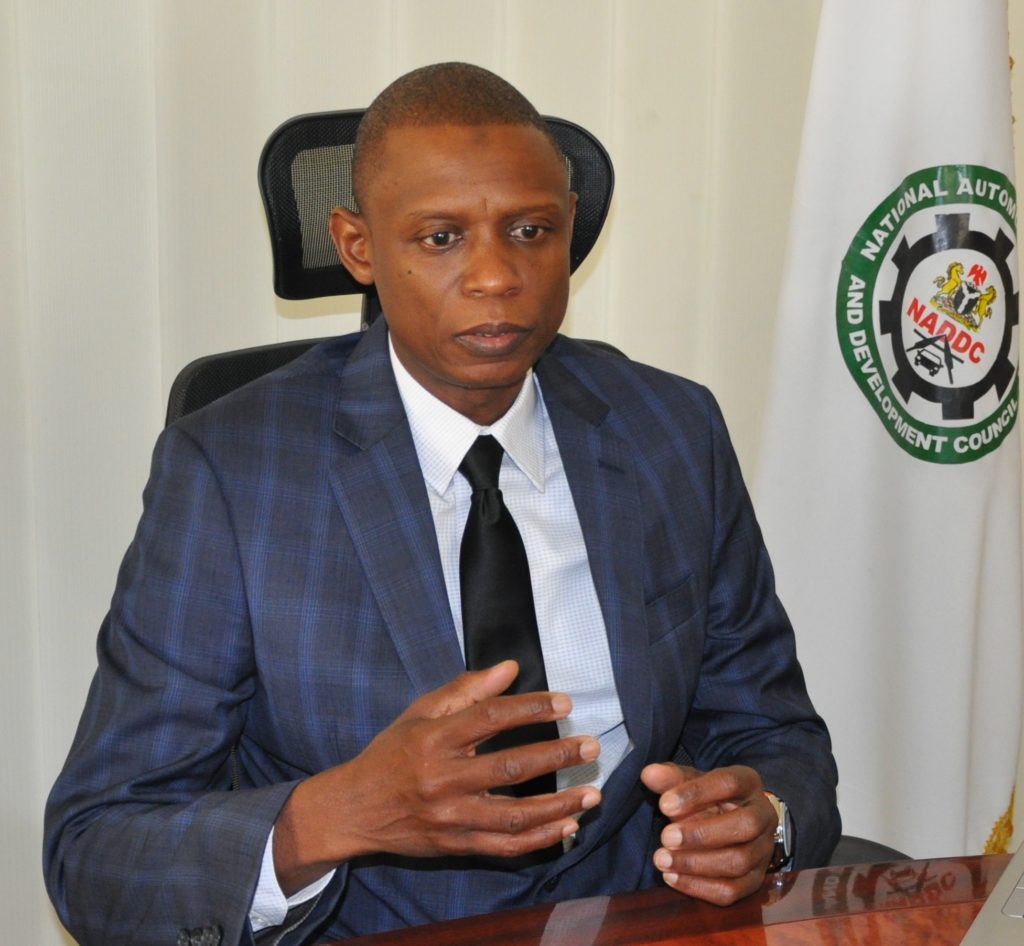

In four years’ time, what are the three things you will want to achieve or the impact you want to make in the industry?
The first is the percentage of vehicles that is assembled either CKD or SKD in Nigeria is very low and in four years’ time, I hope to have at least 60% of the number of vehicles being sold in Nigeria to be produced in Nigeria. Secondly, it is to have a dedicated automotive design and innovation institute where young Nigerians could go and come out be as good if not better than any automotive development professional around the world. These graduates will feed into the Nigerian automotive sector and be the ones creating, designing and developing Nigerian vehicles for Nigerian production. One interesting thing that I will like to emphasize on creating Nigerian designers is that they don’t have to only work 100 percent for indigenous companies, a very good and talented Nigerian automotive designer can design Honda Accord for Nigeria, and they can design BMW for Nigeria and Mali. This is what I think we need to understand. I faced the same argument when I wanted to study automotive designing, a lot of people asked why do you want to do that? We don’t even manufacture nor design vehicles in Nigeria. But now is the time for us to do that. I went for further studies abroad and while I was there, I did a lot of my projects on vehicles for Africa and Nigeria, so we can feed off of that. If we have this young group of Nigerians who are really good and talented in designing vehicles, they will design vehicles for Innoson and more international corporations – vehicles that are designed for Nigerians and Africans.
Thirdly, when we look at what is happening around the world in terms of environmental consciousness, humanity, as about 100 years ago, sees nature as a force to conquer but now nature is now seen as a medium to learn from. So, you look at England and France, they are looking at phasing out fossil fueled vehicles and we can’t be left behind, we can’t be another Cuba. We either jump unto the bandwagon and adopt that technology or sit back and continue to use petrol powered vehicles which is very easy to do, we will end up becoming a dumping ground, but not only will we end up being a dumping ground, I’m afraid if we go that path it will be against the tide of the rest of the world and it may not be good for us to be to be the only polluted region in the world, so we have to begin to understand how we can adopt the electrification of vehicles. So, NADDC is beginning to look at electrified vehicle policy to see how we can support the development of electric vehicles, to boost the manufacture of electric vehicles in Nigeria and also come up with incentives that will help both the manufacturer and buyer of electric vehicles because we can’t be left behind.I know the complaint will be, we can’t even power our homes, so where will we get the electricity to power our cars, but it shouldn’t be a plug and play situation maybe the illusion is out there, but it must not stop us from finding or developing that solution of getting enough electricity for our homes and vehicles, we have a lot of solar energy. So as we move forward in the electrification of vehicles, it has to be a holistic approach not just to provide those electric cars out there, but how do we power those cars. So what forms of power generation can we now develop or adapt in Nigeria to power these vehicles and enhance the rest of our lives.
“There is tremendous hope for companies like Innoson and others that are indigenous. It can only get better for them, because when I visited Innoson … all the way down to Nnewi to see that company there and to know that the founder has made that commitment right there to establish jobs, I could feel the passion in him. And when you have that type of commitment coming from him from the inside, I think the momentum has started.”
Are we asking for too much if we begin to look at cars with advanced technology; cars that use AI or are we being too ambitious in an economy that has not even started at all?
This is a fascinating question and I love it. I have always believed that we can’t afford to shy away from advance technology; it may seem scary at first, but ultimately, advance technology is in most cases even cheaper and less expensive than traditional ways of doing things.A good analogy I will give is when we were growing up, there were just landlines way before cell phones.They were everywhere like electric lines and very few people had phones in those days, just very few offices. And towards the latter part of that era a lot of the networks were down. A lot of the phones were just seated on the table and were not working.Then we just woke up one day and discovered everybody had cell phones.
Also Read: Executive Note By Jelani Aliyu: ‘Why We Must Push Hard For Very Technologically Advanced Reforms’
Now, the government didn’t wake up one day and say everybody must use cell phones; the government didn’t set up a cellular network company. What happened was that a new technology came along and it was fascinating and exciting and a couple of companies and entrepreneurs saw the opportunity and brought it to Nigeria. Yes, the government played the role in regulating it and helping to make it ubiquitous, but the fundamental thing was that it was technology that was easy and was intelligent, accessible, fascinating and got people excited. And whenever you do that it’s unstoppable.See what’s happening in the automotive industry; the three mega trends of electrification, autonomy and ride share.These are fast, fascinating technologies that make up trends that are coming very fast. We can’t afford not to be part of them, just like everybody now has mobile phones; very soon these will be the only types of vehicles that will be available. So, we either adopt them and be part of the movement or we may end up not having vehicles at all.
“I have always believed that the problem with Nigeria is really not the lack of resources or lack of talent, neither is it completely that of corruption, but I think our biggest challenge is the lack of belief that an individual can get up and make his or life better.”
So you believe the revolution that happened in mobile telephony will also happen in the automobile industry?
Yes, and we are even talking about bringing established OEMs from around the world into the country to be part of the eco-system. Pretty soon, the only vehicle that we will have will be these advanced vehicles so it’s either we say okay they are willing to come in and we will work with them or we say no, we just stick to our old vehicles that we don’t even produce now.So we have no other option, but firstly to work with these companies to come with their most advanced technology and we have no other option to go into our universities and polytechnics to teach and train people into the electrification of vehicles, autonomy and ride sharing, and this is where ICT comes into play. A lot has been happening in that front and I think now is the time for the NADDC and NITDA [National Information Technology Policy Development Agency] to really come together and see how we can create these magnificent intelligent vehicles. To leapfrog, all it takes is that commitment and bringing in the necessary stakeholders.


